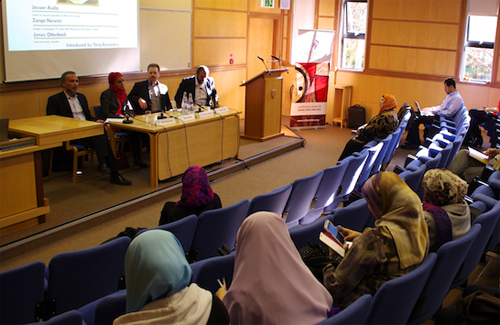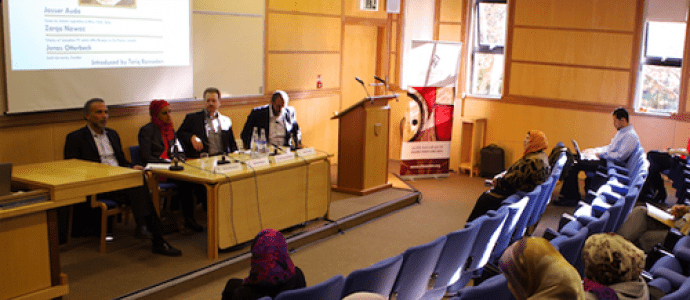
The Center for Islamic Legislation and Ethics (CILE), which is a member of Qatar Faculty of Islamic Studies at Qatar Foundation, held a public lecture entitled: “Ethical limits to Artistic Expression: Islamic Perspective” on May 1st, 2013 in the Middle East Center in Oxford University, UK.
This event is part of a series of specialized seminars and public lectures organized by CILE, combining both scholars of the Islamic Law/Text and scholars of the context in one forum to tackle the critical issues of the day in various fields and professions including methodology, bioethics, environment, politics, food, psychology, media, economics, education, arts and gender studies.
This lecture was organized in parallel with CILE specialized seminar on “Art and Ethics”, which was held at Oxford University from April 30th to May 2nd, 2013.
The lecture was introduced by Professor Tariq Ramadan, CILE Executive Director. Participants in the lecture included: Professor Jasser Auda, CILE Deputy Director, Dr Jonas Otterbeck from Lund University in Sweden, and Canadian script writer and filmmaker Zarqa Nawaz.
Dr Jasser Auda criticized in his speech the concept of Islamic Art and its controversial meanings, and called to implement the higher objectives of Shariah as an ethical framework for artistic production. From a different perspective, Dr Jonas Otterbeck highlighted the variety of the connotations related to the concept of Islamic Art in its current manifestations. Finally, Zarqa Nawaz showed parts of her soap opera “Little Mosque on the Prairie” and elaborated on her experience with the ethical dilemmas of writing the stories, as well as the reaction of the Muslim community towards it.
CILE is specialized in Islamic legislation and ethical thought with a focus on applied ethics. With a vision of reform and renewal guided by the fundamental principles of the Holy Qur’an, Sunna and the higher objectives of Islam/Maqasid, the center aims to provide a methodological and theoretical framework that leads to concrete contributions and practical applications and in the process transforms reality to bring about a more just and ethical world.
















Add new comment